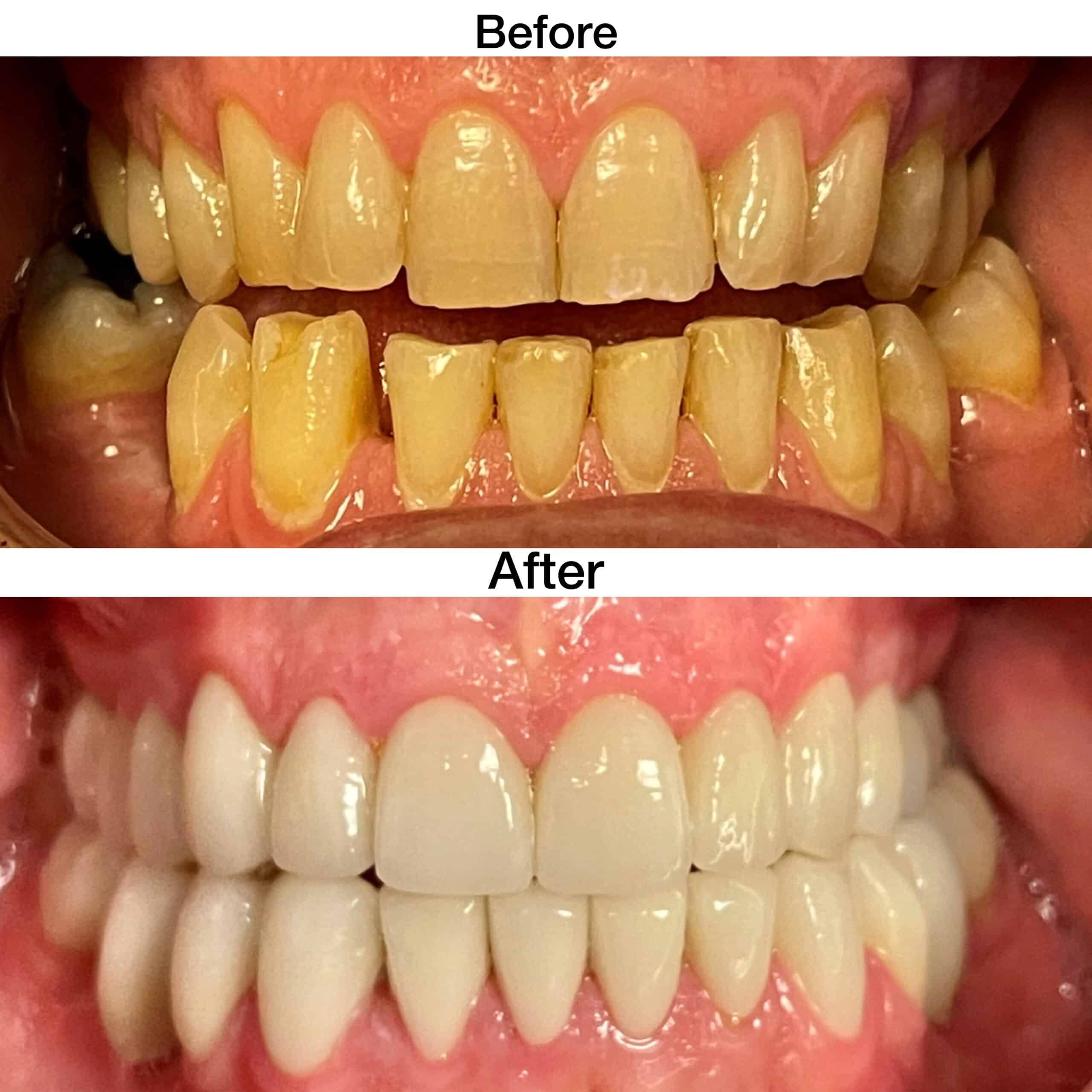Oral health is more than just maintaining a bright smile—it is closely linked to overall health. One often overlooked aspect is how missing teeth can have a significant impact not only on your bite and jaw health but also on your general well-being. Understanding this connection can help highlight the importance of maintaining good oral hygiene and seeking prompt dental care.
The Impact of Missing Teeth on Oral Health
When a tooth is lost, whether due to injury, decay, or gum disease, the gap it leaves behind can lead to a series of oral health issues if not addressed.
- Bite Misalignment: Teeth work together like gears in a machine, and losing even one tooth can disrupt this delicate balance. Adjacent teeth can shift into the empty space, causing misalignment in your bite. This can lead to difficulty chewing, uneven wear on the remaining teeth, and jaw pain as the muscles and joints compensate for the imbalance.
- Jawbone Deterioration: The roots of your teeth provide stimulation to your jawbone, maintaining its strength and structure. When a tooth is missing, that stimulation is lost, leading to bone resorption (the gradual loss of bone tissue). Over time, this can cause the jawbone to shrink, subtly changing the shape of your face and contributing to a more aged appearance. This leads to additional tooth loss or problems with dentures if used.
- Gum Health: The gap from a missing tooth can also create spaces where food and bacteria can accumulate, increasing the risk of gum disease. Without proper cleaning, this can lead to infection, which might eventually spread and cause more serious health concerns.
Systemic Health Impacts
While the local effects of missing teeth are significant, the consequences can extend far beyond your mouth. Here’s how oral health connects to overall health:
- Heart Disease: Numerous studies have found a strong link between gum disease (periodontitis) and cardiovascular disease. When there is an oral infection caused by either gum disease or cavities, bacteria can enter the bloodstream, potentially leading to inflammation of blood vessels. This inflammation may increase the risk of heart attacks and strokes.
- Diabetes: There’s a bidirectional relationship between oral health and diabetes. Poor oral hygiene and tooth loss can make it harder to control blood sugar levels, while diabetes can worsen gum disease, leading to further tooth loss. Managing both conditions through proper dental care and diabetes control is crucial.
- Respiratory Infections: Bacteria from oral infections can be inhaled into the lungs, leading to respiratory issues such as pneumonia, especially in older adults or those with weakened immune systems. A missing tooth, if untreated, can contribute to oral infections that heighten this risk.
- Digestive Issues: Teeth play a crucial role in breaking down food, which is the first step in the digestive process. Missing teeth can impair your ability to chew food properly, leading to digestion problems. Large, poorly chewed food particles are harder for the stomach to process, which can result in issues like indigestion and poor nutrient absorption. Research has shown that periodontal disease, a chronic infection of the gums, is linked to an increased risk of gastrointestinal cancers such as esophageal and colorectal cancer.
- Alzheimer: Research suggests a possible link between poor oral health, particularly gum disease, and an increased risk of Alzheimer’s. Bacteria from the mouth can enter the bloodstream and potentially reach the brain, contributing to inflammation and cognitive decline.
- Pregnancy: During pregnancy, hormonal changes can increase the risk of gum disease, which has been associated with complications like preterm birth and low birth weight. Maintaining good oral hygiene and regular dental checkups is crucial for both the mother and the baby’s health.
Psychological and Social Impacts
Beyond physical health, missing teeth can also affect your mental and emotional well-being. Many people with missing teeth experience a drop in self-confidence, which can lead to social withdrawal and even anxiety or depression. Difficulty speaking, embarrassment over appearance, and the inconvenience of dental prosthetics (such as dentures) can all contribute to a diminished quality of life.
Preventing the Consequences of Missing Teeth
Fortunately, modern dentistry offers several solutions to address missing teeth and prevent the associated health risks:
- Preventive Care: The best way to avoid the complications of missing teeth is to prevent tooth loss in the first place. Preventative dental care plays a crucial role in safeguarding your oral health and preventing more serious issues down the road. Regular dental checkups allow your dentist to identify and treat problems like cavities, gum disease, and plaque buildup before they worsen. Good oral hygiene practices—such as brushing twice a day, flossing daily, and using fluoride toothpaste—are essential for removing food particles and bacteria that can lead to tooth decay or gum disease. Additionally, adopting a healthy diet low in sugary foods and drinks can further protect your teeth. Addressing any dental issues promptly, like sensitivity or discomfort, ensures minor problems don’t escalate into infections or tooth loss. By prioritizing preventive care, you’re not just preserving your smile, but also contributing to your overall health, as oral health is closely linked to heart disease, diabetes, and other systemic conditions. Prevention is always easier and more cost-effective than treatment, making it the smartest approach to dental health.
- Dental Implants: Implants are a great solution for missing teeth. They act like natural teeth, providing stability, restoring bite function, and helping to prevent jawbone deterioration.
- Bridges and Dentures: For those who may not be candidates for implants, dental bridges and dentures are viable options that can restore function and appearance. Regular adjustments and proper care are essential to ensure these replacements fit comfortably and function effectively.
The connection between oral health and overall well-being cannot be underestimated. Missing teeth affect not only your bite and jaw health but can also have serious implications for your general health, contributing to diseases like heart disease, diabetes, and respiratory infections. By understanding these risks and seeking appropriate dental care, you can protect both your oral and overall health, ensuring a healthier, more fulfilling life.




